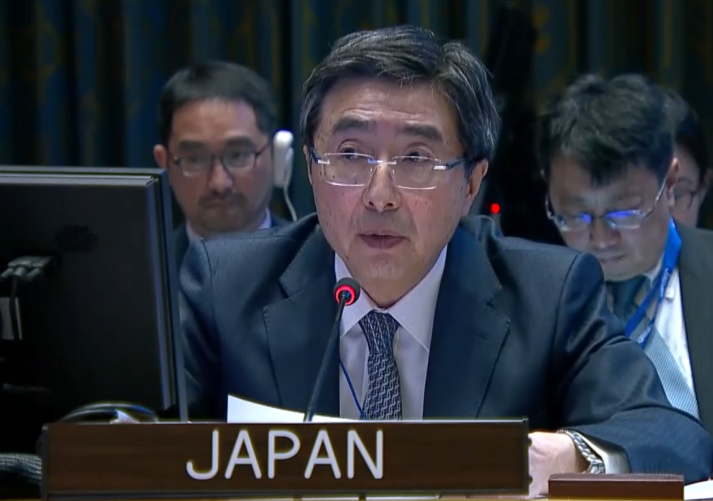女性・平和・安全保障に関する安保理公開討論における 石兼大使ステートメント
令和5年3月7日

(As delivered)
I would like to express my appreciation to you for convening this important debate on women, peace and security, and I thank all the briefers for their comprehensive briefings.
Madame President,
Over the past 25 years, the Security Council has discussed this important agenda extensively. Yet, so many women and girls are still suffering around the world.
It is, of course, of utmost importance that all parties to conflict abide by Resolution 1325 and subsequent resolutions, including full respect of international law applicable to the rights and protection of women and girls.
Having said that, we must not forget that the WPS agenda requires all member states to act. In this context, I fully agree with the relevance of the scope that you set, Madame President, out for today, looking to elaborate on what each of us can do.
Madame President,
I believe that WPS National Action Plans hold the key to securing appropriate engagement. Japan announced its first WPS National Action Plan in 2015, and revised it after the initial implementation period of 3 years. We are actually in the process of formulating our third Action Plan, and our experience has shown that three elements are particularly important: comprehensiveness, inclusiveness and reviews.
First, the National Action Plan has to be comprehensive. In our Action Plan, numerous concrete actions are specified, and relevant Government Ministries and Agencies are required to exercise their ownership and report on their progress. We have also included actions that pertain to natural disasters, since they also pose significant human security challenges, and are relevant to the protection and empowerment of women and girls in fragile situations.
The inclusion of international cooperation and sharing experience with countries in need is another important feature. Our Action Plan covers a wide range of international cooperation to address human security crises. For example, Japan has been a major contributor to the Office of the Special Representative of the Secretary-General on Sexual Violence in Conflict. We have supported their expert teams in building capacity in judicial and security sectors. Recent activities involve those in the Democratic Republic of the Congo, the Central African Republic, Somalia and Iraq.
At the same time, it also includes other human security concerns, such as water and sanitation, health, and education. The necessity of seamless assistance is also recognized in our Action Plan.
Based on the Plan, Japan funded 69 projects run by international organizations and 18 by NGOs during the second three-year period, an increase from 52 and 10 respectively during the first period.
Second, inclusiveness needs to be ensured. WPS is not only about the public sector. Civil society also matters. This is why we have included a periodical external review mechanism by academic and civil society experts in the Action Plan, and their findings are accessible to the public.
As a result of growing public awareness, a parliamentarians' network was launched last month. Such political commitment will be a huge boost.
Third and finally, reviews are necessary for accountability and beyond. Publishing an Action Plan is not an end in itself; we need actions, and more specifically, refined and enhanced actions. A proper review process improves our efforts. I trust that our Third Action Plan will exceed our Second with this process.
Madame President,
The Security Council must live up to its words, not just welcome the efforts of the willing. I hope that everyone here will recommit to the WPS agenda and develop National Action Plans, and also that this debate will be of great help to that end.
I thank you.
